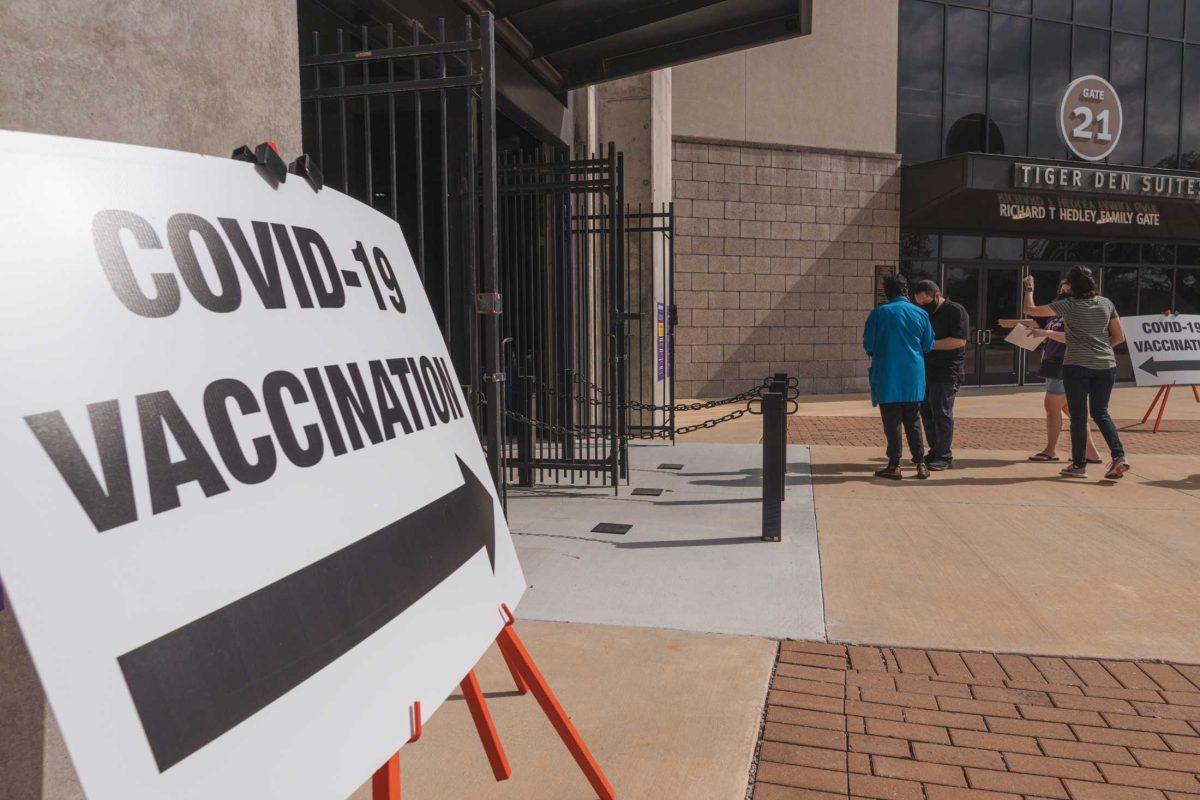LSU has long maintained that state law prohibits universities from requiring students, faculty or staff to receive the COVID-19 vaccine. But colleges across the state need only Louisiana Department of Health (LDH) approval to mandate the vaccine.
LDH has approved mandates for all four schools that have requested them, LDH Director of Communications Aly Neel said: Tulane, Loyola, Xavier and Dillard. Universities — public or private — may request LDH permission to mandate COVID vaccines under Louisiana Revised Statute 17:170, Neel said.
Neel said the revised statute is “more extensive than required by the schedule approved by the Office of Public Health but supported by current CDC recommendations.”
“We are working closely with the Board of Regents and individual institutions to encourage vaccinations on college campuses,” Neel said.
The LSU Board of Supervisors’ most forceful action to date was at their meeting on June 18 when they passed a resolution, urging the LDH to add the COVID vaccines to the schedule of required immunizations for all public schools. The board, however, did not send the request to the LDH until Tuesday, the Louisiana Illuminator reported.
LSU Director of Communications Ernie Ballard cited a letter the university received from Attorney General Jeff Landry in stating that a vaccine mandate was illegal. Ballard pointed to a different section in the same statute that Neel cited, an excerpt that said “mandated vaccines will be according to a schedule published by the Louisiana department of public health.” LDH has not yet included the COVID vaccine in its schedule, but will approve a request to mandate the shots, Neel said.
Landry’s letter said LSU should not require vaccines while it is still under Emergency Use Authorization by the FDA. Landry highlighted that people’s religious beliefs and concerns for long-term effects are protected under federal code to decline vaccinations.
“Louisiana law recognizes the right of students to be free from ‘creed’ discrimination, which includes discriminiation based on religious beliefs and nonreligious beliefs,” Landry said. “Louisiana requires postsecondary institutions to recognize religious and other personal reasons as exemptions to vaccine mandates.”
The renewed fight over mandatory COVID vaccines began when the LSU Health and Medical Advisory Committee sent a letter to administration Friday outlining their recommendations for the upcoming semester.
“Because LSU is not able to mandate vaccines due to state law,” it said, “we must continue to strongly encourage all students to get vaccinated before returning to campus.”
On Sunday, the university Faculty Council responded with a letter, written in conjunction with several lawyers, that said the university was wrong in their conclusion that a vaccine mandate would be illegal. The state government is waiting on the federal government to take action, be it through a revision of FDA policy or a federal mask edict, the letter said. In turn, LSU is waiting on the state government, while, in the meantime, a fourth wave of the pandemic builds. The letter also said that the university has made it likely that LSU will have to return to COVID protocols that were in place in the Fall 2020 semester.
“The ability to responsibly host super-spreader events such as LSU football games is substantially limited in the absence of a vaccine mandate,” the letter says. “Silence and inaction are not a responsible response to an immediate, substantial and largely containable threat to the health and safety of members of its community.”
The advisory committee held a meeting Monday to present their safety recommendations for the upcoming academic semester to administration and faculty. Faculty leaders left the meeting with more questions than answers, participants said, still far apart on the mandate issue and basic safety protocols. But the committee is working on revising recommendations based on the feedback and will hold an open forum with faculty on Thursday.
The advisory committee made recommendations that the university’s administration take numerous measures to ensure the safety of students and staff in the upcoming academic semester. These measures included universal mask requirements around campus and that all on-campus residents should be required to get tested for COVID-19. Faculty members submitted comments to the committee regarding the proposed recommendations, citing that “a simple mask mandate is insufficient.”
Students should have access to recordings of all their classes in case of a COVID-19 related absence, according to the advisory committee. Faculty members raised concerns about this recommendation, arguing that recording all classes is “highly time intensive” and that many classes at the university are not easily recorded.
The increasing rates of the Delta variant of COVID-19 in Louisiana has brought concerns about the safety of campus life returning to pre-COVID conditions. Associate Dean of the Louisiana School of Public Health and member of the advisory committee Ed Trapido stressed the possible dangers of the Delta variant to the public.
“It’s a public health issue. The most important thing is the health and safety of the students and faculty,” Trapido said. ““[The Delta variant] is too dangerous. We have to get it under control.”
But, Trapido added, disagreements over public health policy have hamstrung efforts to keep the public safe. On July 28, LDH reported an 134-patient increase in COVID hospitalizations, bringing the total state number to 1,524. With the fall semester less than a month away, only around 30% of LSU students have reported to the school that they are vaccinated.
“I have learned this year that public health is political,” Trapido said. “I wish it were not that way.”
Madelyn Cutrone and Reed Darcey contributed to this report.







